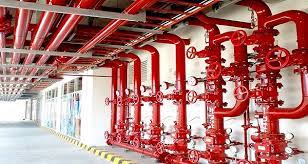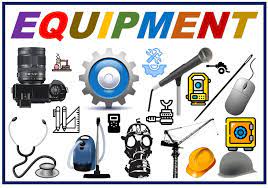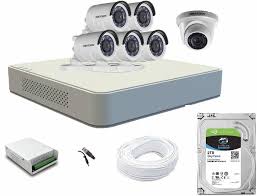Fires pose a significant threat to both life and property, making fire safety a crucial aspect of any building or establishment. A well-designed fire system plays a vital role in preventing, detecting, and suppressing fires effectively.
Fire systems encompass a range of components and technologies that work together to ensure the safety of occupants and minimize the damage caused by fires. Here are some key elements of a typical fire system:
- Fire Alarm Systems: These systems consist of smoke detectors, heat detectors, manual call points, and control panels. When smoke or heat is detected, the alarm is triggered to alert occupants and authorities.
- Sprinkler Systems: Sprinklers are an essential part of fire suppression systems. They automatically release water when high temperatures are detected, helping to extinguish the fire or prevent its spread.
- Fire Extinguishers: Portable fire extinguishers are crucial for quickly tackling small fires before they escalate. Different types of extinguishers are available for various classes of fires.
- Emergency Lighting: In the event of a fire, power outages can occur, leading to darkness and confusion. Emergency lighting ensures that escape routes are well-lit and visible for safe evacuation.
- Fire Doors: Fire-rated doors help contain the spread of fire by providing a barrier between different areas within a building. They are designed to withstand high temperatures for a specified period.
Regular maintenance and testing of fire systems are essential to ensure their proper functioning when needed. Building codes and regulations often mandate the installation of specific fire safety measures based on the type and occupancy of the building.
Effective communication and emergency response procedures also play a critical role in maximizing the effectiveness of fire systems. Conducting regular drills and training sessions can help occupants respond swiftly and appropriately in case of a fire emergency.
In conclusion, investing in a reliable fire system is not just about compliance with regulations but also about safeguarding lives and property. By implementing robust fire safety measures and staying vigilant, we can mitigate the risks posed by fires and create safer environments for everyone.
Six Essential Tips for an Effective Home Fire Safety System
- Install smoke alarms on every level of your home.
- Test smoke alarms monthly and replace batteries as needed.
- Create a fire escape plan and practice it with your family.
- Keep flammable items away from heat sources.
- Have a fire extinguisher in key areas of your home and know how to use them.
- Regularly inspect and maintain heating systems to prevent fires.
Install smoke alarms on every level of your home.
Installing smoke alarms on every level of your home is a crucial fire safety measure that can save lives in the event of a fire. Smoke alarms serve as early warning systems, alerting occupants to the presence of smoke and potential fire hazards. By strategically placing smoke alarms throughout different levels of your home, you ensure that any signs of smoke or fire are detected promptly, giving you and your family valuable time to evacuate safely. Remember, a working smoke alarm is a simple yet effective way to enhance the overall fire safety of your residence.
Test smoke alarms monthly and replace batteries as needed.
Testing smoke alarms monthly and replacing batteries as needed is a simple yet crucial tip for maintaining the effectiveness of a fire system. Smoke alarms serve as early warning devices that can alert occupants to the presence of smoke or fire, giving them valuable time to evacuate safely. By regularly testing the alarms, individuals can ensure that they are in working condition and able to detect potential fire hazards promptly. Additionally, replacing batteries as needed ensures that the alarms remain powered and operational at all times, providing continuous protection against the threat of fires.
Create a fire escape plan and practice it with your family.
Creating a fire escape plan and practicing it with your family is a crucial step in ensuring everyone’s safety in the event of a fire emergency. By developing a detailed plan that includes designated escape routes, meeting points outside the building, and assigning responsibilities to each family member, you can significantly increase the chances of a swift and organized evacuation. Regularly practicing the fire escape plan helps reinforce emergency procedures and familiarizes everyone with the quickest and safest way to exit the premises. Remember, preparedness is key to effectively responding to emergencies and protecting your loved ones.
Keep flammable items away from heat sources.
It is crucial to keep flammable items away from heat sources to prevent the risk of fire. Flammable materials such as paper, cloth, and chemicals can easily ignite when exposed to heat or flames. By maintaining a safe distance between these items and potential heat sources like stoves, heaters, or electrical appliances, the likelihood of a fire breaking out is significantly reduced. Practicing good housekeeping and storage habits can help create a safer environment and minimize the chances of a fire emergency.
Have a fire extinguisher in key areas of your home and know how to use them.
It is crucial to have a fire extinguisher strategically placed in key areas of your home and to be familiar with how to use them effectively. In the event of a fire emergency, quick access to a fire extinguisher can make a significant difference in containing and extinguishing small fires before they escalate. Knowing the proper operation of the fire extinguisher, including the P.A.S.S. technique (Pull, Aim, Squeeze, Sweep), empowers individuals to respond promptly and decisively to protect themselves and their property from fire hazards.
Regularly inspect and maintain heating systems to prevent fires.
Regularly inspecting and maintaining heating systems is a crucial tip for fire prevention. Heating systems, if not properly maintained, can become a fire hazard due to factors such as dust accumulation, electrical issues, or malfunctioning components. By scheduling routine inspections and servicing of heating equipment, potential problems can be identified and addressed promptly, reducing the risk of fires. Taking proactive measures to ensure the proper functioning of heating systems not only enhances safety but also contributes to the overall efficiency and longevity of the equipment.




